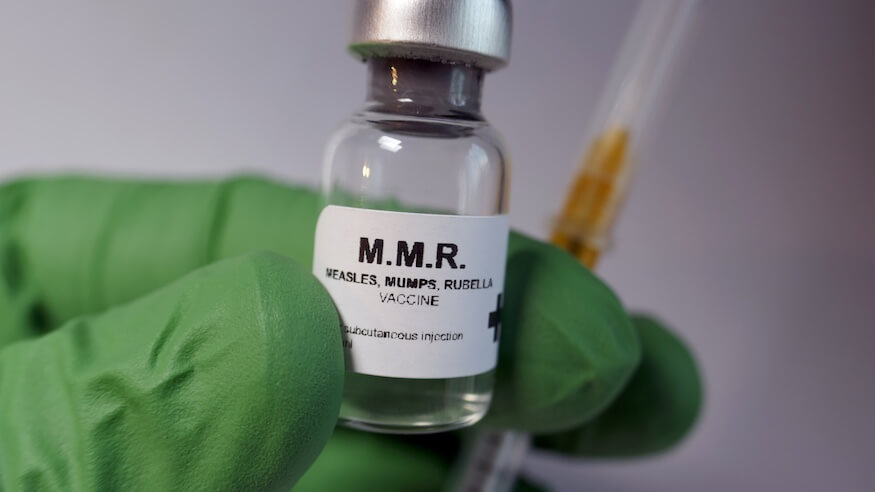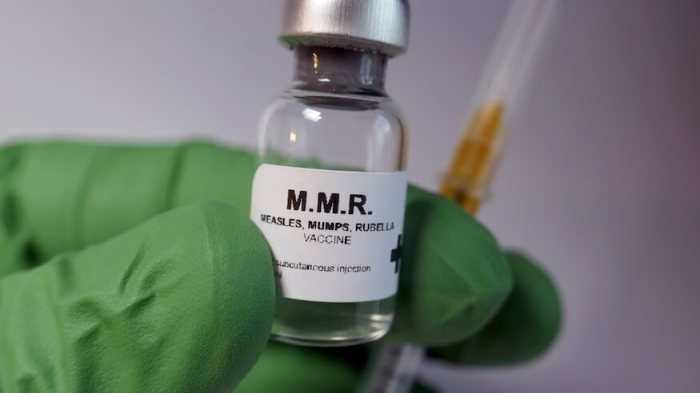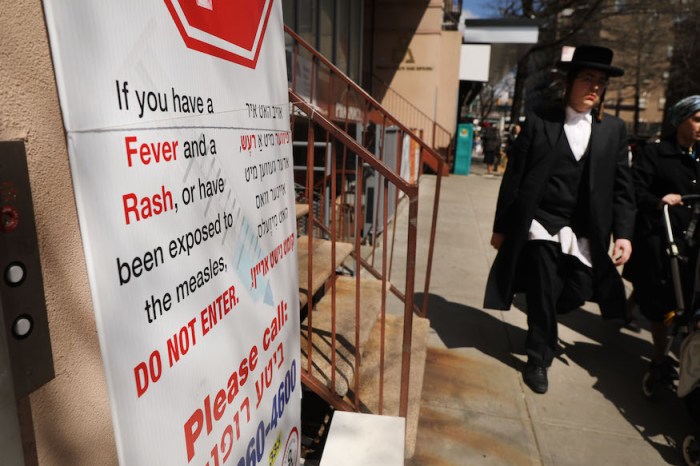The Brooklyn measles outbreak has caused New York City Mayor Bill de Blasio to declare a public emergency in certain areas of the borough.
Mayor de Blasio declared Tuesday that any unvaccinated people living in areas affected by the Brooklyn measles outbreak are required to get a measles vaccine or face fines.
There are at least 285 confirmed cases of measles in ultra-Orthadox neighborhoods in Brooklyn. All residents living in zip codes 11205, 11206, 11211 and 11249 are required to be vaccinated against measles, mumps and rubella, or could face up to a $1,000 fine.
Brooklyn measles outbreaks by neighborhood
According to the New York City Department of Health, the following six Brooklyn neighborhoods have been affected by the measles outbreak. The NYC DOH also confirmed two cases of measles in Flushing, Queens.
Measles symptoms
New York City is facing the largest measles outbreak since 1991. While the majority of the confirmed measles outbreaks are in Williamsburg, other areas of Brooklyn and now Queens have also been affected by the epidemic.
According to the New York City Department of Health measles symptoms usually appear 10 to 12 days after being exposed to the virus. The NYC DOH notes that some of the early measles symptoms include:
— Fever
— Cough
— Runny nose
— Red, watery eyes
Approximately three to five days after early symptoms, a person with measles will notice a rash of red spots on the face that eventually will spread over the entire body.
The measles virus is more severe in infants, pregnant women and anyone with a weaker immune system.
Some of the complications of measles include:
— Diarrhea
— Ear infections
— Pneumonia
— Encephalitis (swelling of the brain)
— Premature birth or low-birth-weight in pregnancy
— Death
Where to get Measles vaccine
According to the NYC DOH, a child should get an MMR (Measles, Mumps and Rubella) vaccination on or after their first birthday.
An MMR vaccine is also recommended for children ages four to six before entering school.
Infants ages six to 11 months should receive a vaccine before traveling internationally.
The DOH recommends that anyone born after January 1, 1957, who has not received a vaccine for measles or doesn’t have a blood test that proves they are immune to the virus should receive two doses of the MMR vaccine.
If you’re looking to get a measles vaccination, you can call your physician, dial 311 or visit vaccines.gov and enter your zip code to find the nearest location that offers the MMR vaccine.























